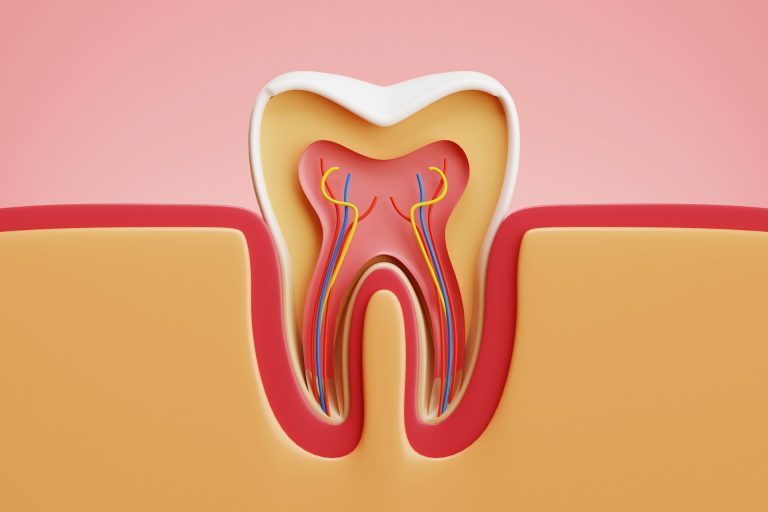Tooth sensitivity is a common yet debilitating oral health issue that affects a significant proportion of the adult population worldwide. This discomforting condition often manifests as a sharp, sudden pain that ricochets through your teeth when they come into contact with hot, cold, sweet, or sour substances. For many, this can result in a noticeable reduction in the quality of life, limiting what they can eat or drink, and sometimes even the simple act of breathing in cold air can cause discomfort.
Tooth sensitivity is a complex issue, with multiple factors contributing to its onset. The underlying cause can be as simple as aggressive tooth brushing, or as complex as gum disease or tooth decay eroding the tooth’s protective enamel layer. Understanding these causes and how to combat them is crucial in managing tooth sensitivity effectively.
This comprehensive guide is designed to provide expert advice and innovative treatment options for those battling this oral health issue. Drawing from a wide range of dental professionals’ expertise, we aim to provide a multi-faceted approach to tackle tooth sensitivity, from preventative measures to professional treatments.
Common Causes of Tooth Sensitivity
Tooth sensitivity is caused by a variety of factors, many of which can be addressed through dental care and preventive measures. Understanding the root causes of your sensitivity can help direct the appropriate treatment plan tailored to your dental needs. Some of the most common causes of tooth sensitivity include:
1. Enamel Erosion: Excessive consumption of acidic foods and beverages, teeth grinding, and aggressive brushing habits can result in enamel erosion, making the teeth more susceptible to sensitivity.
2. Gum Recession: Gum recession, often attributed to gum disease or poor brushing techniques, can expose the tooth’s roots, leading to increased sensitivity.
3. Tooth Decay: Untreated cavities and tooth decay can cause sensitivity, as the decayed areas of the tooth allow external stimuli to impact the nerve.
4. Fractured Teeth: Chipped, cracked, or broken teeth can expose the tooth’s nerve, causing sensitivity and discomfort.
5. Dental Procedures: Sensitivity can be a temporary side effect of dental treatments, such as teeth whitening, fillings, or dental crowns.
By addressing these underlying causes, the dental professionals at Colorado Gum Care can help alleviate tooth sensitivity and restore your oral comfort.
Treatments for Tooth Sensitivity
When you visit Colorado Gum Care, our dental professionals can provide a range of effective treatments tailored to your specific sensitivity issues. These treatments may include:
1. Desensitizing Toothpaste: Desensitizing toothpaste contains special ingredients designed to block nerve signals, reducing sensitivity over time. Our dentist may recommend a specific brand or formula best suited to your needs.
2. Fluoride Application: Applying fluoride to the sensitive areas of your teeth can help strengthen the enamel, making it less susceptible to erosion and cavity formation.
3. Bonding or Dental Sealants: If your sensitivity is caused by exposed tooth roots or dental decay, dental bonding or dental sealants can help protect the affected areas and reduce sensitivity.
4. Root Canal Therapy: In cases of severe sensitivity with no relief from other treatments, a root canal may be necessary to eliminate the pain. This procedure involves removing the tooth’s nerve, effectively ending the sensitivity.
Preventing Tooth Sensitivity
Prevention is always better than cure, and the same holds true for tooth sensitivity. Taking preventive measures can significantly reduce your chances of experiencing dental discomfort. Here are some steps you can take to prevent tooth sensitivity:
1. Proper Brushing Technique: Brush your teeth gently using a soft-bristled toothbrush, as aggressive brushing can cause enamel erosion and gum recession. Speak with our dental professionals for specific advice on brushing technique.
2. Limit Acidic Foods and Beverages: Minimizing your consumption of acidic foods and beverages can help prevent enamel erosion. If you do consume acidic substances, rinse your mouth with water afterward to help neutralize the acids.
3. Maintain Good Oral Hygiene: Practicing proper oral hygiene habits, including regular brushing, flossing, and professional dental cleanings, can help prevent cavities, gum disease, and other conditions that contribute to tooth sensitivity.
4. Address Teeth Grinding: If you grind your teeth at night, talk to our dental professionals about a custom-fitted nightguard that can protect your teeth from damage and prevent enamel erosion.
Partnering with the dental professionals at Colorado Gum Care, you can develop a personalized prevention plan that addresses the root causes of your tooth sensitivity and ensures long-lasting oral health.
Say Goodbye to Tooth Sensitivity: Tips and Treatments from Dentists at Colorado Gum Care
As we navigate through the complexities of tooth sensitivity, it becomes clear that this issue requires both public awareness and professional intervention. By understanding its causes, recognizing its symptoms, and seeking expert advice for treatments, we can effectively combat tooth sensitivity and ensure optimal oral health.
Ultimately, the fight against tooth sensitivity underscores a broader objective—empowering individuals to take control of their dental health, thereby enhancing their overall well-being.
Experience the benefits of a proactive approach to combating tooth sensitivity by partnering with our dedicated dental service provider in Broomfield, CO. Schedule a consultation today to receive expert guidance and support in addressing your dental health challenges and reclaiming a pain-free, vibrant smile.







